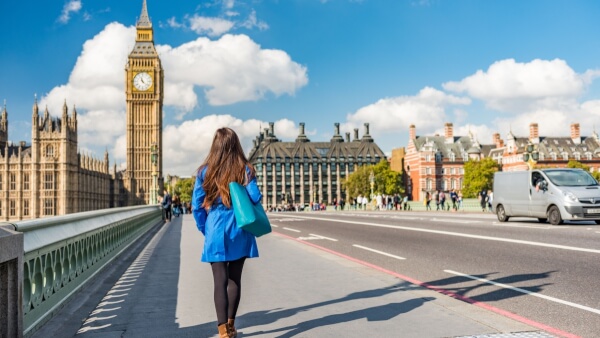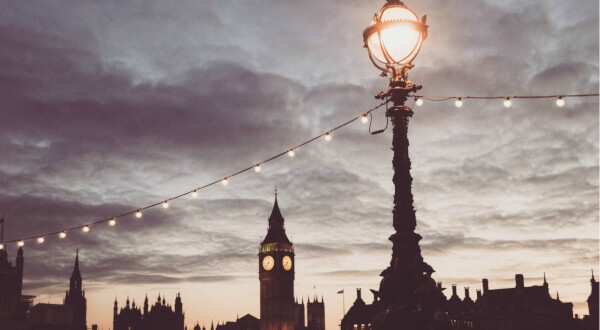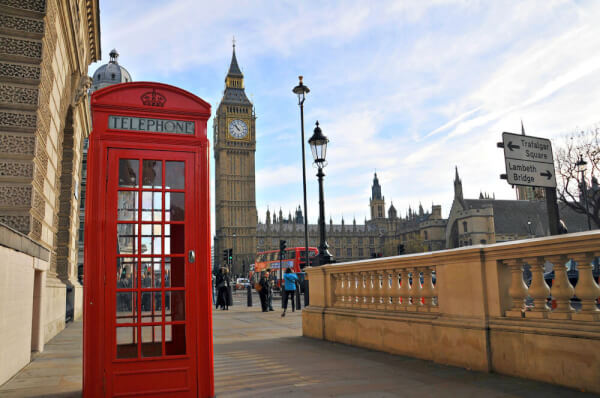Top 7 property management software systems in the UK
Get a full overview of the best property management software systems in the UK that will help you easily track and manage your overseas property.

The United Kingdom is rich with history and tradition. A destination wedding in the UK is sure to be an extraordinary event for you and your loved ones. From the majestic castles and rolling hills, to the quaint villages and luxury of London’s finest hotels, you can host whatever style wedding you wish.
This article breaks down the facts on UK weddings, from the legal requirements to the necessary paperwork. Read on for estimated wedding costs and highlights of popular UK wedding venues and traditions.
UK law recognizes both civil and religious weddings. Civil ceremonies can take place at a register office or approved venue. Popular religious weddings in the UK include Anglican, Jewish, Quaker, and other types of Christianity, but most types of religious weddings are possible; check with your venue of your choice for details.
The UK also offers civil partnerships for same sex couples, which has similar rights as marriage in terms of benefits and immigration status.
You must be at least 16 years old to get married or form a civil partnership in the UK. If you're under 18 years old in England, Wales, and Northern Ireland you'll need parental permission. On the day of the marriage, two witnesses must be present.
For non-UK nationals, requirements to enter the UK to get married vary based on the couple’s situation. You may need to apply for a Family of a Settled Person visa or a Marriage or Civil Partnership Visitor visa to enter the country. This government guide to marriages and partnerships has more information on visa requirements.
If both of you are from outside of the UK, you'll need to obtain a visa to give notice and get married, even if you do not normally require a visa to visit the UK. This process differs slightly from England to Scotland to Northern Ireland, so check with the municipality where you plan to marry.
Once you're ready to register for your marriage, you'll need to take the following to the local register office of the district that you intend to get married in:
You must give at least 28 days notice at your local register office. This notice will remain public at the office for that 28-day period before your wedding date. The same process applies if either of you are from outside of the EU/EEA or Switzerland, or are subject to immigration control. You can only give notice at a registered office if you have lived in the registration district for at least seven days. This government guide to marriages and civil partnerships has more information on the application process.
If you need a visa to enter the UK to get married you'll incur fees. These fees vary by country and by visa. For example, the Marriage and Civil Partnership Visitor visa costs $120 for Americans and A$156 for Australians. This visa fees guide can help you determine what you might have to pay.
When you're ready to give notice about your upcoming nuptials, you each need to pay a £35 fee when you attend the register office. This may be more if you or your partner are from outside the EEA or Switzerland. Your marriage or civil partnership certificate costs £4 on the day of the event or £10 after.
Your wedding budget can be given a boost by using Wise. The borderless multi-currency account allows you to hold and manage money in multiple currencies, so you can forget about crazy bank fees or unfair exchange rates. If you need to transfer money to the UK, you’ll be able to do so using the real mid-market rate that you can find on Google or XE and with a small transparent fee, stated upfront. In early 2018 you can also get a debit card, so you don’t even have to have a bank account in the UK to be able to access your pounds. You can check and compare rates using this handy currency converter tool.
Civil marriage and partnership ceremonies can be held at a register office or another approved venue. Religious weddings can take place at a church, chapel, or any other other registered religious building. You may want to view this list of local register offices and this list of approved premises (for civil marriages and civil partnerships) to help you decide where to get married.
For more assistance from your home country these links may be helpful:
Australia:
Canada:
Ireland:
United States:
The average cost of a wedding in the UK is £27,000, but costs will depend on the level of formality and location you choose. For example, a wedding in central London may have a higher price tag than a countryside wedding in Wales. To help you with your planning, here is an estimated cost of a 30-person wedding:
| Item | Approximate cost |
|---|---|
| Accommodation, 30 guests, 3 nights (avg. £150 pp/night) | £13,500 |
| Paperwork, ceremony fees | £1,000 |
| Reception Site | £3,000 |
| Flowers, decorations | £1,200 |
| Wedding rings | £600 |
| Dress, groom’s outfit, accessories | £2,500 |
| Wedding Planner | £1,500 |
| Photographer | £1,200 |
| Cake | £500 |
| Food, Drinks | £3,500 |
| Celebrant | £400 |
| Music | £800 |
Here are some popular wedding reception venues in the UK:
| Venue | Description |
|---|---|
| Castle Howard (North Yorkshire, England) | A typical historic stately house and gardens that’s often used in films |
| Bamburgh Castle (Northumberland, England) | The ‘king of castles’ where legend has it the knights of King Arthur once resided |
| The Savoy (London, England) | An historic Edwardian hotel in the middle of The Strand, where Winston Churchill used to spend his time |
| Shilstone (Devon, England) | A Romantic Georgian country house with geometric stone floors, fountains and gardens aplenty |
| St. Pierre (Monmouthshire, Wales) | A hotel and country club, surrounded by 400 acres of parks |
| Plas Hafod (Flintshire, Wales) | An 18th-century house with acres of gardens and walking paths |
| Ackergill Tower (Wick, Scotland) | A luxury estate in the northernmost tip of Wick, where guests can enjoy the natural beauty of the Highlands and Europe’s largest treehouse with a bedroom |
| The Carriage Rooms At Montalto (Ballynahinch, Northern Ireland) | A fairy-tale venue with unique architecture and many gardens |
| Dunvegan Castle (Isle of Skye, Scotland) | A castle and gardens steeped in the history and legends of the McLeod clan |
| Ulster Hall (Belfast, Northern Ireland) | The cultural entertainment and arts center of Belfast, where dances, boxing matches and concerts have taken place throughout history |
A Scottish wedding will differ from a Welsh wedding and neither will be exactly the same as a typical English or Northern Irish wedding. However, they'll all have many facets of the day in common. Here are some local traditions from the UK that you may want to include in your wedding:
Good Luck Charms - English brides sometimes sew a good luck charm onto their dress. In Scotland, you may find a sixpence in the bride's shoe and white heather in her bouquet.
Luckenbooth Brooch -This brooch, often made of silver and encrusted with crystals, is exchanged by couples in Scotland when they become engaged.
Wedding Favors - This small package of five almonds is given to guests representing fertility, longevity, wealth, health, and happiness.
Receiving Line - It’s common for a receiving line to form immediately following the ceremony or at the beginning of the reception for the bridal party to welcome guests.
Bagpipes -The sound of bagpipes is a customary tradition seen at many Scottish and Northern Irish weddings.
From cozy pubs to exquisite estates, there's something in the UK to suit every couple and their guests. Planning ahead can help ease the process and keep you within your budget. Your destination wedding in the UK is bound to make your dreams come true!
*Please see terms of use and product availability for your region or visit Wise fees and pricing for the most up to date pricing and fee information.
This publication is provided for general information purposes and does not constitute legal, tax or other professional advice from Wise Payments Limited or its subsidiaries and its affiliates, and it is not intended as a substitute for obtaining advice from a financial advisor or any other professional.
We make no representations, warranties or guarantees, whether expressed or implied, that the content in the publication is accurate, complete or up to date.

Get a full overview of the best property management software systems in the UK that will help you easily track and manage your overseas property.

Are you looking for the best Airbnb management companies in London? Find out all about the top local providers to take care of your rental property overseas.

Interested in buying land in Scotland? Here’s everything you need to know about buying a plot of land abroad as an American.

If you’re considering moving to the UK, then you’ll want to read this moving to UK guide first! Find all you need to know about moving to the UK.

Everyone needs to call home every now and then. To find out how to call UK from US, take a look at this article – we'll show you all tips & area codes you need!

Are you pregnant? Congratulations - this is one of the most exciting periods of your life. But if you’re living abroad as an expat, visitor, or non-resident...